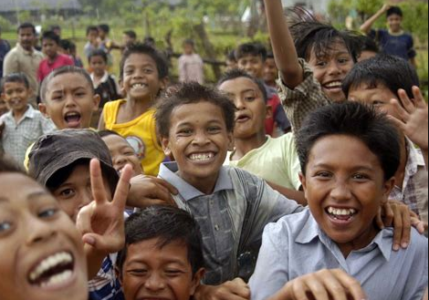Over 204.8 million eligible voters participate in the single-day election, with extended polling hours in rain-hit regions and quick counts expected soon.
JAKARTA: Indonesians braved heavy rain on Wednesday (Feb 14) to cast their votes in what is widely regarded as the world’s largest single-day election. The polls will decide Indonesia’s next president, vice-president, and lawmakers at all administrative levels.
Polling stations opened at 7 a.m. across the archipelago’s three time zones, but torrential rain delayed voting in some areas, including parts of Java. In Demak Regency, Central Java, voting was postponed in affected villages, while some Central Jakarta polling stations started late due to flooding. To accommodate delays, the General Elections Commission (KPU) extended polling hours.
Despite weather challenges, the enthusiasm among voters remained high. In South Jakarta’s Cilandak district, voters, including first-timers and elderly citizens, expressed pride in exercising their democratic rights.
Key Moments and Observations
Presidential candidate Anies Baswedan voted early in South Jakarta, drawing crowds eager for selfies. Supporters gathered outside his residence, celebrating his campaign’s grassroots momentum. Meanwhile, rival candidate Ganjar Pranowo cast his vote in Semarang, Central Java, urging calm regardless of the election outcome. Defense Minister Prabowo Subianto, another presidential hopeful, described the rain as a blessing while casting his vote in West Java.
The elections witnessed robust youth participation, with over half of the eligible voters aged between 17 and 40. Issues like cost of living, climate change, inclusivity, and corruption dominated voter concerns.
Allegations of Electoral Misconduct
The days leading up to the election were marred by accusations of electoral fraud and misuse of state resources. Critics alleged that outgoing President Joko Widodo, barred from seeking a third term, was leveraging state apparatus to favor the Prabowo-Gibran ticket. Allegations included the use of military and police channels to influence vote tabulation, sparking public debate and potential legal challenges if the results are close.
Early Poll Projections
Pollsters predict a tight race, with Prabowo Subianto and Gibran Rakabuming Raka leading with 51.8% support, according to a recent survey. Anies Baswedan and his running mate Muhaimin Iskandar trail with 24.1%, while Ganjar Pranowo and Mahfud MD hold 19.6%.
To avoid a runoff, a candidate must secure at least 50% of the vote. If necessary, the runoff is scheduled for June 26, setting the stage for further political maneuvering.
Implications of the Outcome
As Southeast Asia’s largest economy, Indonesia’s leadership transition will have significant implications for regional and global affairs. Key policy issues, including nickel export bans critical to the electric vehicle industry and Indonesia’s relationships with the U.S. and China, will likely be pivotal for the next administration.
The KPU has 30 days to finalize official results, though past elections suggest they may be announced within a week. Regardless of the outcome, the new president and vice-president will be inaugurated on October 20, ushering in a new chapter for Indonesia’s democracy.








